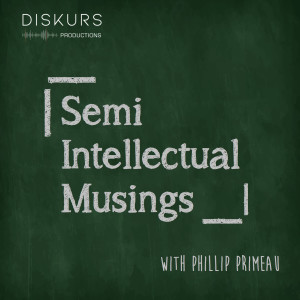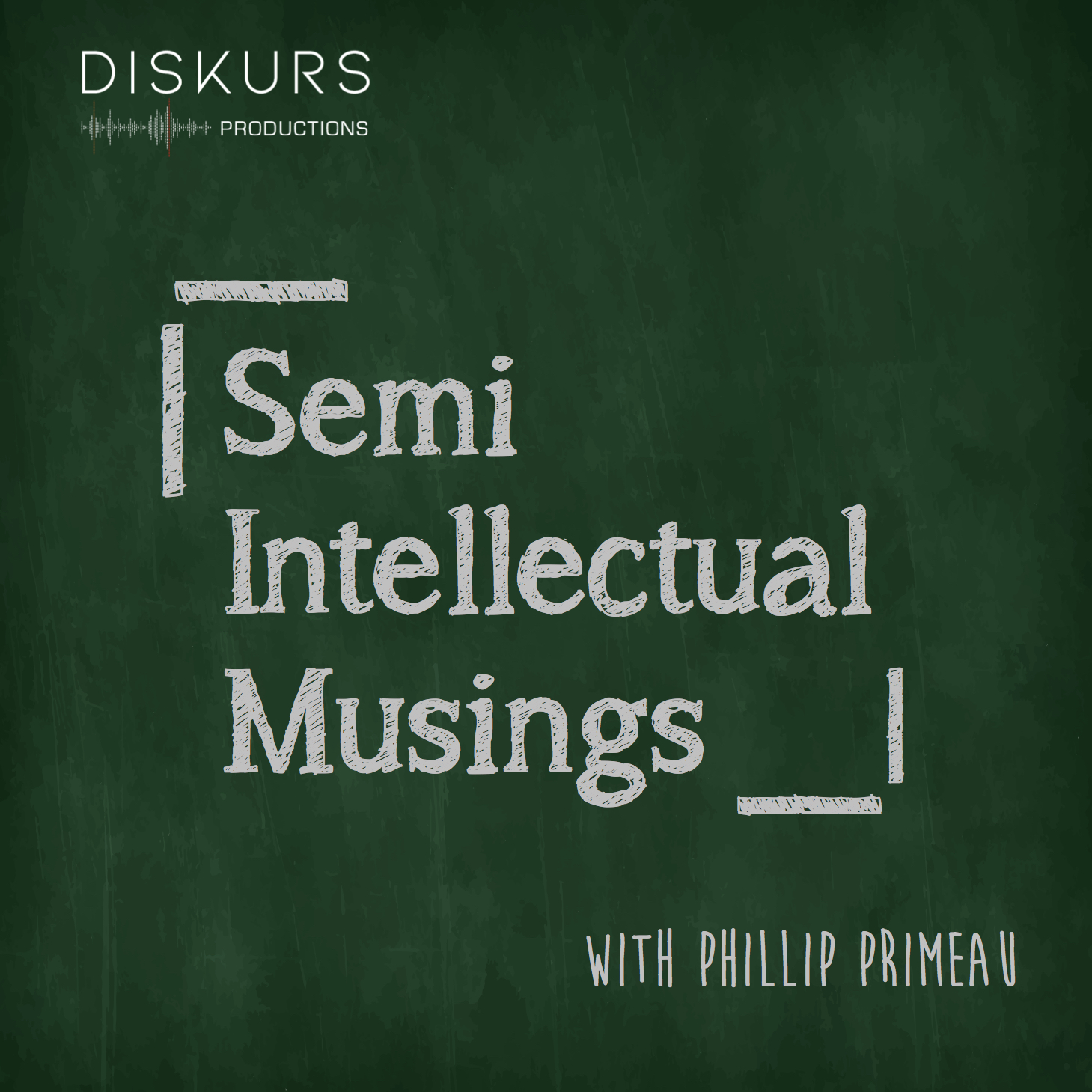Episodes

Monday May 08, 2017
Technology & Teaching Toolbox
Monday May 08, 2017
Monday May 08, 2017
Matt went for a baby care crash course by looking after his cousin’s son. This conversation regressed or progressed, depends on how you look at it, into a vague discussion on kinship and the significance of cousinhood. We were both confused as to what constitutes a 2nd cousin, there is an answer (5:45). Phil brings us back to the surface with his most recent experiences grading, of course this also quickly digressed into a conversation about grading philosophies and how as graders we should pay close attention to our emotional states. Turns out neither one of us wants to see another multiple choice test in the social sciences. BOOK IT!
Our Top Technology Teaching Toolbox Tips (14:37)
We wanted to do an episode early on about teaching, but these kinds of conversations can tend to be somewhat all over the place which is why Phil put together this list of teaching tools that he has used in the classroom. Matt had a heady day, so he just sat back, took the notes and asked questions.
We started off with a confession: we are both Luddites. Matt connected the Luddites to the invention of the printing press which he connected to the Protestant Reformation. CORRECTION: Turns out the Luddites can be traced to the late 1700-early 1800’s, we placed them a bit early it seems.
There are many recommendations in this episode, falling broadly within 5 categories. We finish up the conversation with another confession: WRITING IS HARD! It’s difficult for everyone, even for Stephen King. We also start talking a bit about classroom power dynamics using certain pedagogical techniques such as flipped Learning and the need to be authentic while presenting.
In-Class and Conference Presentations:
Prezi (21:14): pushing Power-Point to the brink, but with more functionality and ease of use, Prezi makes your classroom and conference presentations visually appealing and easier to make. Prezy saves your presentations to a cloud which means it is always available across multiple platforms. Prezi is free to use and you can seamlessly embed videos and audio. Prezi saves you time when creating a presenting and makes your presentation stand out against other linear styles of presenting information.
TED, TEDx, TED Ed (23:00). Quality content that is easily embedded into presentations and allows lecture content to be re-watched and expanded on at after class time ends.
Socrative (27:23) is a program that allows you to easily create assessment tools that combines fun games and easy to understand reports to follow students progress.
Jeopardy Maker (28:17): Website for making engaging and fun Jeopardy-style quizzes. Matt got a little too jazzed-up over this, Phil said that he incentivizes with candy…even for the losers.
The good old chalkboard (31:07): The primary tool of all teachers, for a good reason. We share some tips and experiences about using this underappreciated technology. The Walk, Chalk & Talk is explored here.
Collaboration:
Dropbox (35:36): Easy to use, even for these Luddites, and Phil likes it because you can easily share and unshare documents and he is not convinced other cloud based services are as easy to use.
iScanner (iTunes / GooglePlay) / Scanner Pro (iTunes) (36:59): Matt thinks this will ‘steal your retina’ Phil explains that it is a picture-to-PDF converter that he uses to snap shots of notes, comments and mind maps to then share with students. Really easy to use, helpful for continual feedback and makes collaborating easy when getting together physically is difficult.
Skype and GoogleVoice (38:10): Skype is a bit easier for multi-person conversations because of its ease of sharing screen screens, but either are adequate to chat with a student or a collaborator when physically getting together is difficult. Skype and Google offer phone numbers, like those landline number we used to all have. This additional avenue to communicate can only help collaboration (Here’s how to share your screen in Skype).
Office Hours (38:28): Whether it’s time one-on-one, or as a small group, office hours are an important part in connecting and collaborating with students. Phil and Matt both tell their students that “I’m your note taker”. This allows students to free up thinking power and when combined with some of the previous technologies, makes collaboration a breeze. Don’t forget your white board and your mobile scanner.
Time Management:
Toggl (42:50): This is a simple to use time tracker. You press record, define what activity you are doing, it makes easy to understand timesheet reports at the end of the week. It works on phones and a webtop browser, making it easy to use wherever you’re working. Matt likes this idea of pressing a button and locking in, he also offers up his own recommendation: work in 40-45 min intervals, this is the upper limit of human attention span. He says to set an alarm and you will find that if your attentions starts to waver it has probably been 45 mins. This apparently is called the Pomodoro Technique. Phil ponders in his head if this podcast is too long and we are losing people along the way? Let us know.
Doodle (46:06): This is a great meeting tool, easy to use and easy to modify, it replaces the 37 email long chain when trying to organize a meeting with three people, two weeks from now.
Citation Management:
End Note (46:32): While there are many citation management tools out there, for ease of use Phil recommends End Note. It allows PDF documents to be imported into the tool, allowing you to markup the file with notes. There are many citation management suites out there, find the one that works best with your workflow.
Writing:
Scrivener (48:18): Get away from using the standard linear text editing software. Phil makes a strong recommendation for adopting Scrivener to prepare lengthy manuscripts. Scrivener brings together all your data, chunks of text, folders and stacks of papers into one place. Scrivenor will become your writing engine. Through the use of binders, Scrivener organizes your writing into sections, and the cork board allows you to take notes on the fly. This allows you to you work with one window open, forcing your attention on what counts in our line of work: writing. There is now a tablet version that easily syncs your documents to a cloud. The tool also has a neat writing counter that tells you how much you need to write each session to meet your target goal. There are many many more features as well, go check it out for a free trial before you commit cash to it. Thanks to Leslie for introducing Phil to this!
Evernote (51:20). If Scrivner is the engine, Evernote is your virtual notepad. Keep things written down and easily allows you to declutter your mind. Evernote syncs with so many applications now that it has become the go-to note-taking, list-making, reminder-prodding tool. Obviously, these show notes would have been much better (shorter!) had they been written in Evernote.
Powerthesaurus.org (53:17). Easy to use thesaurus resource. It’s crowdsourced, offers several sorting options and at the time of writing this claims to have 19M synonyms. Get inspired.
Hardware:
MacBook Air / Chromebook (53:47): Phil puts forth a strong argument for using small, portable laptops. This allows you to write anywhere and doesn’t take-up much needed desk real estate. Battery life is generally good on smaller devices and can be easily paired with a more robust Bluetooth or USB keyboard (if you are anything like Phil and have a habit of pounding on the keys as if they are the ones responsible for writer’s block, a Bluetooth or USB keyboard is a wise investment). Matt waxed poetic about his little Netbook (RIP).
External hard drives (55:25): Make sure to keep backups -even if you save to a cloud service. Save everything twice, Phil says.
Wrapping things up on a broader note, Matt and Phil talk about dismantling power dynamics in the classroom through flipped learning and basically being an empathetic and hopefully, an authentic human being.
Last plug: 57 Ways to Screw Up in Grad School, by Kevin D. Haggerty & Aaron Doyle (University of Chicago Press, 2015). Some of the ways folks can screw up are applicable beyond grad school.
Even more Recommendations (1:03:37):
Matt brought in two by Orwell to talk about: Books v Cigarettes (Penguin) is a collection of articles and essays, including the title essay which is a cost benefit analysis Orwell’s two addictions. The second is Road to Wigan Pier (Penguin), which is an ethnographic account of Lancashire and Yorkshire and its coal industry in the mid 1930’s. The Elias book that Phil talked about (and for which he feels really silly not remembering!): The Established and The Outsiders by Norbert Elias & John L. Scotson (SAGE).
Concluding thought: Gesticulation is a good thing, whether during a presentation or a podcast, but doesn't help much when writing.
-------------------------------
Follow Semi-Intellectual Musings on Twitter: @The_SIM_Pod
Email Matt & Phil: semiintellectual@gmail.com
Subscribe to the podcast: https://thesim.podbean.com/feed/
For full show notes: https://thesim.podbean.com/e/technology-teaching-toolbox/
The show is now on iTunes: https://itunes.apple.com/ca/podcast/semi-intellectual-musings/id1232065376
The show can also be found on Stitcher: http://www.stitcher.com/s?fid=138244&refid=stpr
Please leave us a rating and a review, it really helps the show!
Music: Song "Soul Challenger" appearing on "Cullahnary School" by Cullah. Available at: http://www.cullah.com. Under CC BY SA license http://creativecommons.org/licenses/by-sa/4.0/


8 years ago
Tons of great info here. I will be using this ep like a reference book I think.